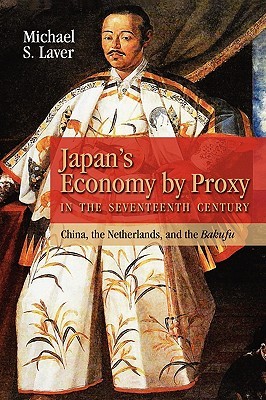
- We will send in 10–14 business days.
- Author: Michael Laver
- Publisher: Cambria Press
- Year: 2008
- Pages: 316
- ISBN-10: 1604975008
- ISBN-13: 9781604975000
- Format: 15.2 x 22.9 x 2.2 cm, kieti viršeliai
- Language: English
- SAVE -10% with code: EXTRA
Japan's Economy by Proxy in the Seventeenth Century (e-book) (used book) | bookbook.eu
Reviews
Description
Although Japan had severely curtailed its political involvement with the wider world in the seventeenth century, the Japanese economic influence on Asia remained quite pronounced. Even when the Japanese government expelled the Spanish and Portuguese and limited the Dutch to a small outpost in Nagasaki, and also decided to prohibit its own citizens from traveling abroad, the Japanese economy remained a force in Asia and played a significant role in the world economy as well. The seventeenth-century economy of Japan, however, was an "economy by proxy" since the agents that exchanged Asian and European luxury goods for Japanese products and precious metals were not Japanese but rather Dutch, Chinese, Korean, and Ryukyu Islanders. These peoples moved in to fill the economic gap left by the forced exclusion of the native Japanese merchants from an active role in the foreign economy of Japan. This eloquently detailed account illuminates the tremendous impact that the Japanese economy had on Asia and on the foreigners trading in Japan in the seventeenth century. This is a valuable addition to all collections in Asian Studies and World History.
EXTRA 10 % discount with code: EXTRA
The promotion ends in 23d.19:07:18
The discount code is valid when purchasing from 10 €. Discounts do not stack.
- Author: Michael Laver
- Publisher: Cambria Press
- Year: 2008
- Pages: 316
- ISBN-10: 1604975008
- ISBN-13: 9781604975000
- Format: 15.2 x 22.9 x 2.2 cm, kieti viršeliai
- Language: English English
Although Japan had severely curtailed its political involvement with the wider world in the seventeenth century, the Japanese economic influence on Asia remained quite pronounced. Even when the Japanese government expelled the Spanish and Portuguese and limited the Dutch to a small outpost in Nagasaki, and also decided to prohibit its own citizens from traveling abroad, the Japanese economy remained a force in Asia and played a significant role in the world economy as well. The seventeenth-century economy of Japan, however, was an "economy by proxy" since the agents that exchanged Asian and European luxury goods for Japanese products and precious metals were not Japanese but rather Dutch, Chinese, Korean, and Ryukyu Islanders. These peoples moved in to fill the economic gap left by the forced exclusion of the native Japanese merchants from an active role in the foreign economy of Japan. This eloquently detailed account illuminates the tremendous impact that the Japanese economy had on Asia and on the foreigners trading in Japan in the seventeenth century. This is a valuable addition to all collections in Asian Studies and World History.


Reviews